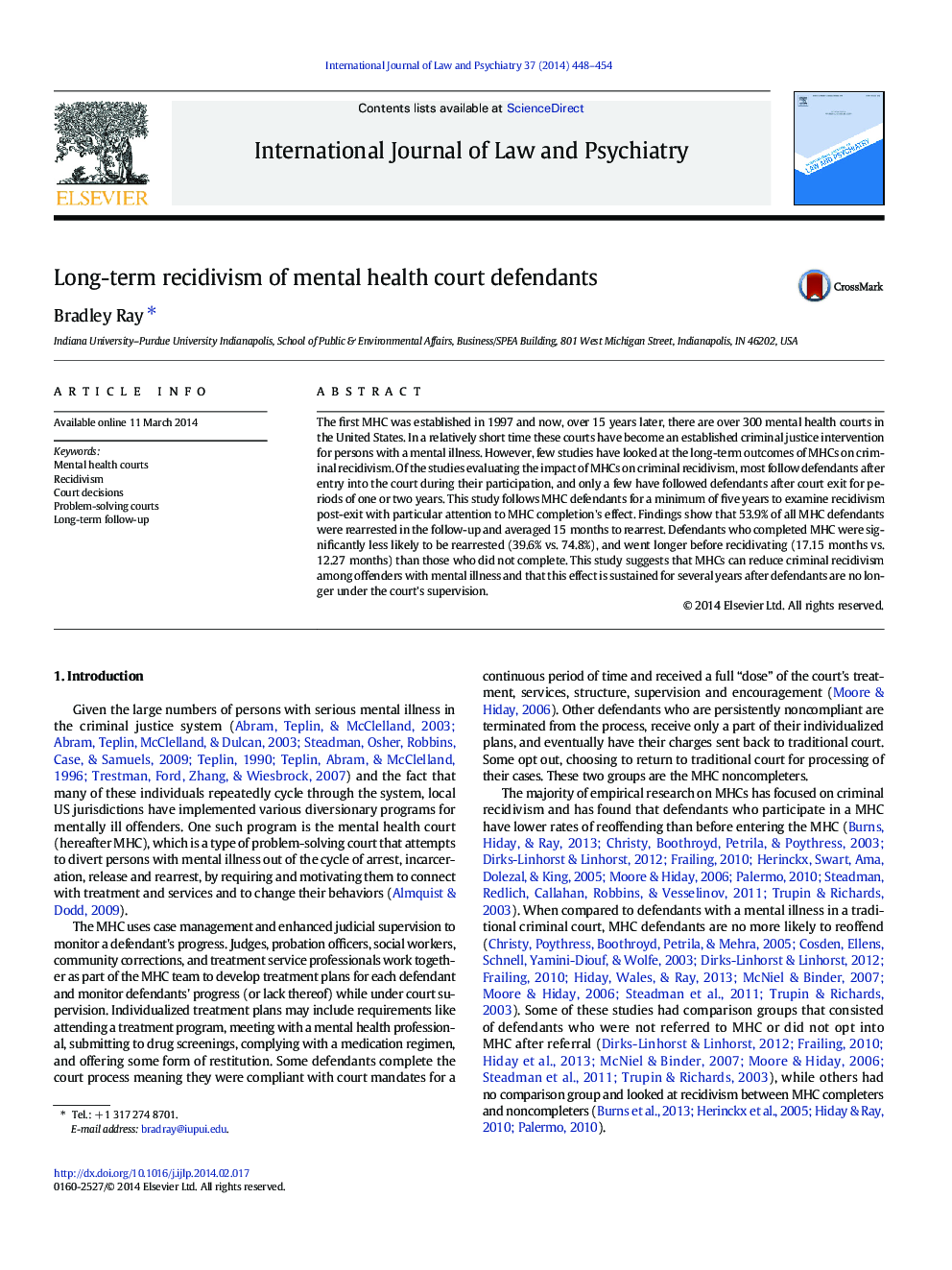| Article ID | Journal | Published Year | Pages | File Type |
|---|---|---|---|---|
| 100774 | International Journal of Law and Psychiatry | 2014 | 7 Pages |
The first MHC was established in 1997 and now, over 15 years later, there are over 300 mental health courts in the United States. In a relatively short time these courts have become an established criminal justice intervention for persons with a mental illness. However, few studies have looked at the long-term outcomes of MHCs on criminal recidivism. Of the studies evaluating the impact of MHCs on criminal recidivism, most follow defendants after entry into the court during their participation, and only a few have followed defendants after court exit for periods of one or two years. This study follows MHC defendants for a minimum of five years to examine recidivism post-exit with particular attention to MHC completion's effect. Findings show that 53.9% of all MHC defendants were rearrested in the follow-up and averaged 15 months to rearrest. Defendants who completed MHC were significantly less likely to be rearrested (39.6% vs. 74.8%), and went longer before recidivating (17.15 months vs. 12.27 months) than those who did not complete. This study suggests that MHCs can reduce criminal recidivism among offenders with mental illness and that this effect is sustained for several years after defendants are no longer under the court's supervision.
